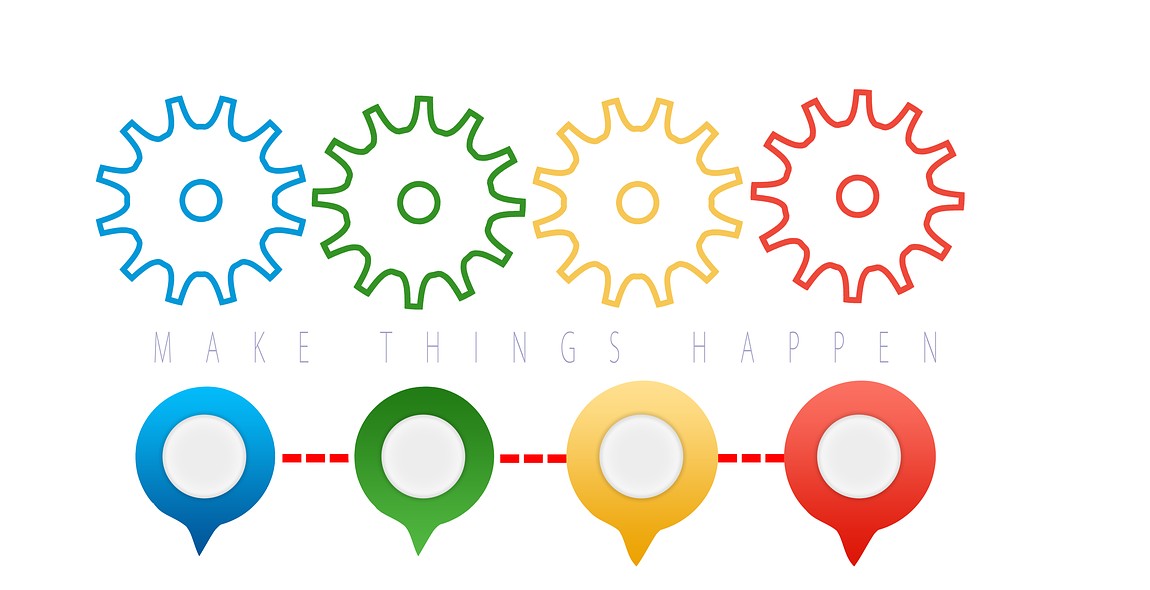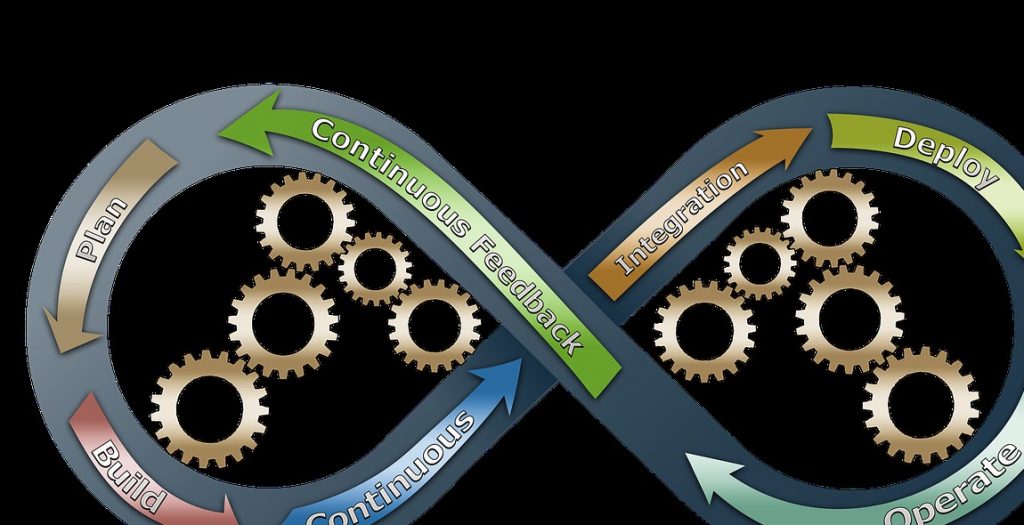Introduction
Effective communication is a critical skill that can significantly impact our personal and professional lives. Whether we are interacting with colleagues, clients, or loved ones, the ability to connect and convey our thoughts, ideas, and emotions is essential for success.
Building effective communication skills involves more than just speaking clearly or writing concisely. It requires active listening, empathy, and the ability to understand and adapt to different communication styles. By mastering these skills, we can foster stronger relationships, resolve conflicts more effectively, and achieve our goals more efficiently.
In this article, we will explore the key elements of building effective communication and offer practical tips to help you enhance your communication abilities. We will delve into the importance of active listening, non-verbal communication, and choosing the right words to convey your message effectively. Additionally, we will discuss strategies for overcoming communication barriers and building rapport with others.
Whether you are a business professional looking to improve your leadership skills or an individual seeking to enhance your personal relationships, this article will provide you with valuable insights and actionable steps to become a more effective communicator.
The Importance of Effective Communication
Effective communication is a vital skill that plays a crucial role in various aspects of our lives, including personal relationships and the workplace. It is the key to successfully connecting with others and achieving success in both professional and personal endeavors.
Why Effective Communication is Essential for Success
Effective communication is essential for success because it allows individuals to convey their thoughts, ideas, and emotions clearly and concisely. It helps in building strong relationships, resolving conflicts, and fostering understanding and cooperation. With effective communication, individuals can articulate their goals, expectations, and needs, enabling them to work collaboratively towards achieving common objectives.
The Impact of Effective Communication in Personal Relationships
Effective communication is the foundation of healthy and fulfilling personal relationships. It enables individuals to express their feelings, listen actively, and understand each other’s perspectives. Through effective communication, conflicts can be resolved, trust can be built, and intimacy can be deepened. Strong communication skills foster empathy, respect, and openness, creating a harmonious and supportive environment for all parties involved.
The Role of Effective Communication in the Workplace
In the workplace, effective communication is crucial for productivity, teamwork, and overall success. It ensures that tasks and responsibilities are clearly communicated, minimizing misunderstandings and errors. Effective communication also promotes a positive work culture, where ideas can be freely shared, feedback can be given constructively, and conflicts can be resolved efficiently. It enhances collaboration, boosts employee morale, and contributes to the overall efficiency and effectiveness of the organization.
Barriers to Effective Communication
Effective communication is essential for building strong connections and achieving success in both personal and professional relationships. However, various barriers can hinder the smooth flow of communication. Understanding and overcoming these barriers is crucial to ensure effective communication.
Lack of Clarity and Misinterpretation
One of the major barriers to effective communication is the lack of clarity and misinterpretation of messages. When messages are not clear, it can lead to confusion and misunderstandings. This can occur due to poor articulation, vague language, or incomplete information. To overcome this barrier, individuals should strive to communicate their thoughts and ideas clearly, using precise and concise language.
Emotional and Psychological Barriers
Emotional and psychological barriers can also hinder effective communication. These barriers include fear, anxiety, stress, and preconceived notions. Emotional barriers can prevent individuals from expressing themselves openly and honestly, leading to communication breakdowns. Overcoming these barriers requires individuals to develop emotional intelligence, which involves understanding and managing emotions effectively.
Cultural and Language Barriers
In an increasingly diverse world, cultural and language barriers can pose significant challenges to effective communication. Different cultures have distinct communication styles, norms, and values. Language barriers can arise when individuals do not share a common language. To overcome these barriers, it is important to embrace cultural diversity, learn about different communication styles, and use translation services or interpreters when necessary.
Technological Barriers
In the digital age, technological barriers can impede effective communication. Issues such as poor internet connectivity, technical glitches, and unfamiliarity with communication tools can hinder smooth communication. To overcome these barriers, individuals should ensure they have access to reliable technology, familiarize themselves with communication platforms, and seek technical support when needed.
Strategies for Building Effective Communication
Effective communication is crucial for building strong connections with others and achieving success in both personal and professional relationships. By implementing the following strategies, you can enhance your communication skills and foster meaningful interactions:
1. Active Listening
Active listening involves fully engaging with the speaker, paying attention to their words, tone, and body language. It is important to avoid interrupting and provide feedback to demonstrate your understanding. This shows respect and promotes open dialogue.
2. Non-Verbal Communication
Non-verbal cues, such as facial expressions, gestures, and eye contact, play a vital role in conveying messages. Being aware of your own non-verbal signals and interpreting those of others can help you better understand and respond effectively in any conversation.
3. Empathy and Understanding
Empathy involves putting yourself in the other person’s shoes, acknowledging their feelings, and responding with compassion. By demonstrating empathy and seeking to understand their perspective, you can build rapport and trust.
4. Clarity and Conciseness
Communicating clearly and concisely is essential for avoiding misunderstandings. Use simple language, organize your thoughts, and focus on delivering your message in a concise manner. This helps ensure that your intended meaning is accurately conveyed.
5. Adapting to Different Communication Styles
Recognize that people have different communication styles, and adapt your approach accordingly. Some individuals may prefer direct and assertive communication, while others may respond better to a more indirect or collaborative approach. Adjusting your style can help establish effective communication and build stronger connections.
By incorporating these strategies into your communication practices, you can foster effective and meaningful connections, leading to success in various aspects of your life.
Overcoming Communication Challenges
Effective communication is essential for building strong relationships and achieving success in both personal and professional settings. However, various challenges can hinder effective communication. Here are some strategies to overcome these challenges:
Conflict Resolution
Conflicts can arise due to differences in opinions, values, or goals. To resolve conflicts, it is crucial to actively listen, understand different perspectives, and find common ground. Encouraging open dialogue and maintaining a calm and respectful tone can help in reaching mutually beneficial solutions.
Managing Difficult Conversations
Difficult conversations may involve delivering tough feedback, addressing sensitive topics, or resolving conflicts. Preparing in advance, using clear and concise language, and actively listening to the other person’s perspective can make these conversations more productive and less confrontational.
Building Trust and Rapport
Trust and rapport are the foundation of effective communication. Building trust requires being honest, reliable, and maintaining confidentiality. Establishing rapport involves active listening, showing empathy, and demonstrating genuine interest in others’ thoughts and feelings.
Effective Feedback and Criticism
Providing constructive feedback and criticism is essential for growth and improvement. It is important to focus on specific behaviors or actions, use a neutral and non-judgmental tone, and offer suggestions for improvement. Additionally, being receptive to feedback and actively seeking it can enhance communication and personal development.
Managing Virtual Communication
In today’s digital age, virtual communication has become increasingly common. To overcome the challenges of virtual communication, it is crucial to use clear and concise language, leverage video conferencing tools for face-to-face interactions, and establish regular check-ins to maintain open lines of communication.

Improving Communication Skills
Effective communication is a crucial skill that can greatly impact personal and professional success. By continuously learning and developing communication skills, individuals can enhance their ability to connect with others and achieve their goals.
Continuous Learning and Development
Improving communication skills requires a commitment to continuous learning. This can involve reading books, articles, and blogs on effective communication techniques. Additionally, attending seminars, webinars, and conferences can provide valuable insights and strategies for enhancing communication abilities.
Seeking Feedback and Self-Reflection
Feedback is a powerful tool for improving communication skills. Actively seeking feedback from colleagues, friends, and mentors allows individuals to identify areas for improvement and make necessary adjustments. Engaging in self-reflection also helps in recognizing personal strengths and weaknesses and developing strategies to enhance communication effectiveness.
Practicing Effective Communication in Daily Life
Improving communication skills requires consistent practice. Individuals can make a conscious effort to communicate clearly, listen actively, and engage in meaningful conversations in their daily interactions. This can be achieved by being mindful of body language, tone of voice, and choice of words.
Joining Communication Workshops and Courses
Participating in communication workshops and courses can provide structured learning opportunities to enhance communication skills. These programs offer practical exercises, role-playing scenarios, and feedback sessions to help individuals develop effective communication strategies.
Utilizing Technology for Communication Improvement
Technology can be a valuable tool for improving communication skills. Utilizing video conferencing, online collaboration platforms, and communication apps can help individuals practice effective communication in virtual settings. Additionally, using speech recognition software or language learning apps can assist in improving pronunciation and language fluency.
Conclusion
Effective communication is the cornerstone of success in both personal and professional relationships. By developing strong communication skills, individuals can build meaningful connections with others, foster collaboration, and achieve their goals.
Throughout this article, we have explored various strategies for enhancing communication, such as active listening, empathy, and non-verbal cues. We have also discussed the importance of clarity, brevity, and adaptability in conveying messages effectively.
It is crucial to recognize that communication is a two-way street, requiring both speaking and listening skills. By actively engaging in conversations and valuing others’ perspectives, we can create an atmosphere of trust and respect.
Furthermore, technology has revolutionized the way we communicate, providing us with numerous tools and platforms to connect with others. However, it is essential to strike a balance between virtual interactions and face-to-face communication to maintain genuine connections.
Lastly, effective communication not only benefits individuals but also organizations. By fostering open and transparent communication channels, businesses can improve teamwork, increase productivity, and enhance customer relationships.
In conclusion, building effective communication skills is a lifelong journey that requires continuous practice and self-reflection. By honing these skills, individuals can forge deeper connections, overcome challenges, and ultimately achieve success in all aspects of life.
References
Books
- Adler, R. B., & Elmhorst, J. M. (2019). Communicating at work: Strategies for success in business and the professions. Oxford University Press.
- Covey, S. R. (2004). The 7 habits of highly effective people: Powerful lessons in personal change. Simon & Schuster.
- Kouzes, J. M., & Posner, B. Z. (2017). The leadership challenge: How to make extraordinary things happen in organizations. Wiley.
Journal Articles
- Argyle, M., & Dean, J. (1965). Eye-contact, distance and affiliation. Sociometry, 28(3), 289-304.
- Knapp, M. L., & Hall, J. A. (2002). Nonverbal communication in human interaction. Wadsworth.
- Shaw, M. E., & Costanzo, P. R. (1982). Theories of social comparison: A critical evaluation. Social Psychology Quarterly, 45(3), 172-179.
Websites
- Forbes. (n.d.). How to build effective communication skills in the workplace. Retrieved from https://www.forbes.com/sites/forbescoachescouncil/2018/01/25/how-to-build-effective-communication-skills-in-the-workplace/
- Mind Tools. (n.d.). Effective communication: Improving your social skills. Retrieved from https://www.mindtools.com/CommSkll/CommunicationIntro.htm
- Psychology Today. (n.d.). Effective communication: Improving your social skills. Retrieved from https://www.psychologytoday.com/us/basics/communication
Reports
- Deloitte. (2017). Global Human Capital Trends. Retrieved from https://www2.deloitte.com/global/en/pages/about-deloitte/articles/human-capital-trends.html
- Interact. (2018). The cost of poor communication. Retrieved from https://www.interact-intranet.com/blog/the-cost-of-poor-communication-infographic/
Note: All sources were accessed and reviewed on [Date].
